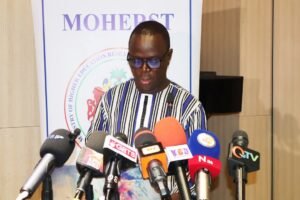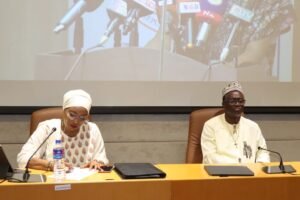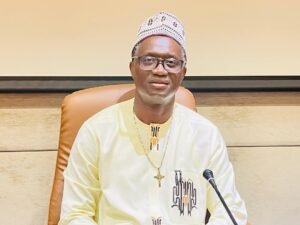The Ministry of Higher Education, Research, Science, and Technology (MoHERST), in collaboration with key stakeholders, has validated the 2024 Technical and Vocational Education and Training (TVET) Graduates Tracer Study Report.
The high-profile event, held at the Sir Dawda Kairaba Jawara International Conference Centre in Bijilo, marked a significant step in advancing the TVET sector in The Gambia.
Presiding over the validation exercise, Honourable Minister of Higher Education, Research, Science and Technology, Professor Pierre Gomez, described the report as a “critical milestone” in the collective mission to reform and strengthen technical and vocational education.
“This study provides an empirical foundation to guide policy reforms and institutional strategies aimed at skilling, upskilling, and reskilling our workforce,” said Minister Gomez.
He reiterated the government’s commitment to fostering a skills-driven economy, ensuring that young Gambians receive quality training that leads to meaningful employment and sustainable livelihoods.
He also credited the leadership of President Adama Barrow for prioritizing youth empowerment through TVET investments, infrastructure expansion, and stronger public-private partnerships.
The tracer study project, funded by the World Bank through the RISE Project under the Central Project Coordination Unit (CPCU) at the Ministry of Finance and Economic Affairs (MoFEA), is designed to evaluate the long-term outcomes of TVET programmes.
The data-driven approach is expected to provide critical insights into employment trends, industry needs, and the career trajectories of graduates.
In her opening remarks, Permanent Secretary of MoHERST, Ambassador Jainaba Jagne, acknowledged the tireless efforts of the Ministry’s Technical Working Group in reviewing the study and praised stakeholders for their unwavering collaboration.
“This validation process underscores our commitment to transforming The Gambia’s TVET system to align with both national and economic needs,” she noted.
Also speaking at the event, Jacob Sanwidi, an Education Expert from the Africa Labor Group (ALG), underscored the importance of continued research, revealing that ALG is currently conducting a
“Decentralised Policies Review Study” to further refine education policies in The Gambia.
Adding to the discourse, Ms. Ndey Anta Taal, Project Coordinator at CPCU under MoFEA, stressed the need for evidence-based policymaking.
“The findings from this study will serve as an indispensable repository of knowledge, shaping the discourse on TVET effectiveness and providing a nuanced understanding of its impact on economic development,” she asserted.
With the validation of the TVET Graduates Tracer Study Report, stakeholders believe that The Gambia is well-positioned to enhance its vocational training sector, ensuring that graduates are better equipped to meet the demands of the evolving labour market.
















More Stories
GPF holds sensitization programme at Gambia Senior Secondary School
Gambia, Senegal Seal Ambitious Education Pact to Expand Scholarships and Innovation
Gambia unveils National Madrassah Board in landmark education reform